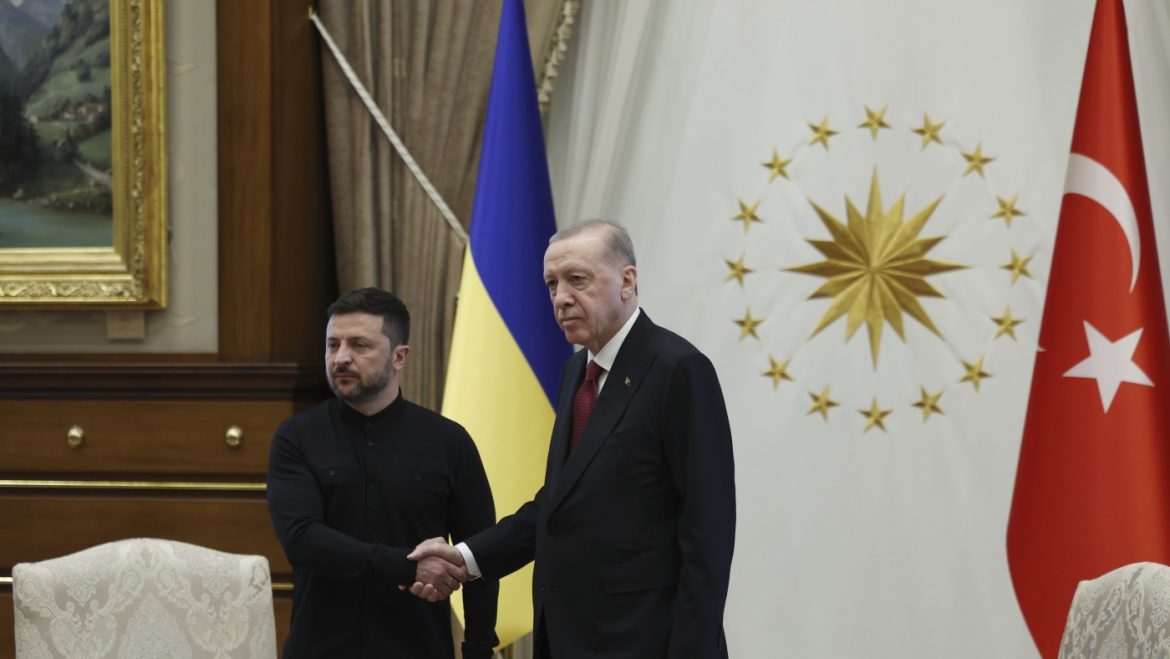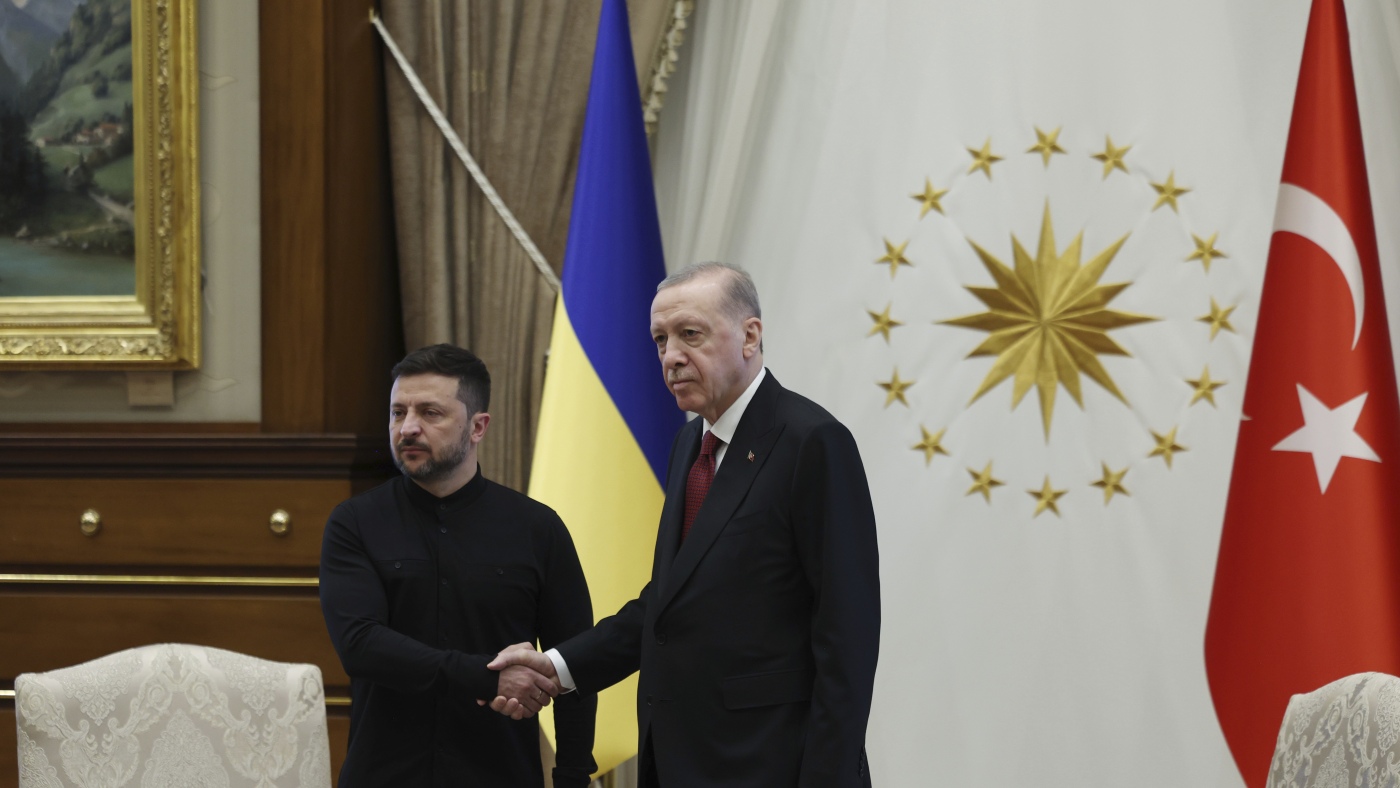The Latest Chapter in Ukraine-Russia Peace Talks: Zelenskyy’s Stand in Turkey
In a highly anticipated moment on the international stage, Ukrainian President Volodymyr Zelenskyy has arrived in Turkey for peace talks aimed at curbing the ongoing conflict between Ukraine and Russia. The talks, however, carry a significant caveat: Russian President Vladimir Putin has refused to attend in person, sending instead a lower-level delegation to Istanbul. This development has shaped the outlook, dynamics, and perceptions surrounding the peace initiative and raised pointed questions about the future course of diplomacy in this conflict.
Background and Context of the Talks
These peace talks follow months of devastation caused by Russia’s full-scale invasion of Ukraine, which began in February 2022. The last direct discussions between the two leaders took place in Istanbul in March 2022, early in the conflict, and since then the war has entrenched. Recent calls by Ukraine and European allies urged Russia to agree to a 30-day ceasefire starting May 15, serving as a precursor to peace negotiations. While Russia dismissed that ceasefire proposition, it did propose direct negotiations without prior conditions.
Against this backdrop, Zelenskyy’s decision to travel to Turkey reflects a dual message: his willingness to engage diplomatically despite the high stakes, and a challenge directed squarely at Putin. Zelenskyy has insisted that any substantial talks must involve Putin personally, rejecting engagement with lesser Russian officials. He framed the refusal by Putin to attend as a clear sign of Russia’s unwillingness to end the war.
Zelenskyy’s Position and Strategy in Istanbul
Zelenskyy’s stance is marked by firmness combined with symbolic resolve. By being the sole head of state present at the talks, he not only demonstrates Ukraine’s commitment to a peaceful resolution but also places the burden of absence squarely on Putin. His vow to wait in Turkey for the Russian president underscores a strategic use of diplomatic theater — casting Putin’s non-attendance as political defiance rather than simple discretion.
This move also includes putting international pressure on Russia. Prior to the talks, Zelenskyy publicly called on Putin to meet him in person, a challenge amplified by former U.S. President Donald Trump’s attempt to attend the talks alongside Zelenskyy to coax Putin into participation. Trump’s involvement, although ultimately not realized, added another dimension of international attention and pressure.
By rejecting negotiation with any Russian delegation short of Putin himself, Zelenskyy seeks to differentiate between formal peace talks and lesser-level discussions that might serve as distractions or delays. His position signals that he regards face-to-face dialogue between leaders as essential to forging a meaningful and credible peace agreement.
Putin’s Absence: Implications and Interpretations
The Kremlin’s announcement that Putin will not travel to Turkey has led to immediate ramifications in the tone and prospects of the talks. Putin’s absence represents a clear rejection, signaling Moscow’s reluctance to engage at the highest level, at least for now.
Sending a lower-level delegation suggests that Russia may still be interested in talks but on terms that allow it to avoid direct confrontation or personal negotiation with Zelenskyy. This approach can be interpreted as a way to maintain leverage and control over the narrative of the peace process. It also reflects ongoing mistrust between the two nations and Russia’s apparent resistance to the conditions Zelenskyy has set.
Putin’s choice to stay away despite Zelenskyy’s personal invitation and international calls for dialogue indicates that Moscow does not perceive sufficient incentives or pressure to alter its course. This deepens doubts about Russia’s readiness for any genuine peace breakthrough in the near term.
International Reactions and Mediation Efforts
Turkey’s role as the host of these talks highlights its continued diplomatic initiative in the Ukraine conflict. Istanbul served as the venue for the initial direct talks in 2022 and is now a symbolic ground for renewed efforts.
European leaders, having joined Zelenskyy in calls for the ceasefire and peace talks, watch closely as the process unfolds. The absence of Putin, however, tempers optimism. Allies of Kyiv emphasize the importance of sustained pressure on Russia through diplomatic, economic, and military means, reflecting a broader strategy that includes readiness for prolonged conflict.
The international dimension was also colored by Donald Trump’s announced willingness to attend the talks, tied to a political gambit linking U.S. influence and Russia-U.S.-Ukraine dynamics. Despite Trump’s eventual withdrawal, such involvement underscores the global stakes and political theater spread across the negotiation space.
Possible Outcomes and Future Trajectories
The stalemate in Istanbul symbolizes the deep fractures that remain. Without direct engagement between the top leaders, substantive progress is unlikely. The lower-level Russian delegation’s talks might open channels for dialogue but do not amount to a high-level commitment.
Zelenskyy’s insistence on Putin’s presence may serve a strategic aim beyond immediate negotiations — rallying international support, maintaining morale at home, and framing Russia as the obstructionist party in the conflict.
Should Putin continue to refuse personal talks, Kyiv’s allies may consider strengthening sanctions, military aid, or alternative diplomatic avenues. Conversely, unexpected shifts—such as a change in Russia’s calculus or third-party mediation breakthroughs—could revive hopes.
Conclusion: A Test of Will and the Road Ahead
The symbolic arrival of President Zelenskyy alone in Turkey to seek peace talks conveys the profound complexity of ending the Ukraine war. It is a narrative of courage accompanied by frustration, of willingness to engage met by refusal to reciprocate.
These events reveal a broader truth about contemporary geopolitics: peace negotiations in such conflict zones require alignment not only of immediate interests but also of political will and trust, both deeply lacking now.
As Zelenskyy waits in Istanbul, his message resonates beyond Turkey’s borders—that peace is possible, but only if Russia’s leadership chooses to step forward. The coming days will test that choice and shape the path of this historic conflict, with the eyes of the world fixed firmly on the negotiation table and its empty seats.


